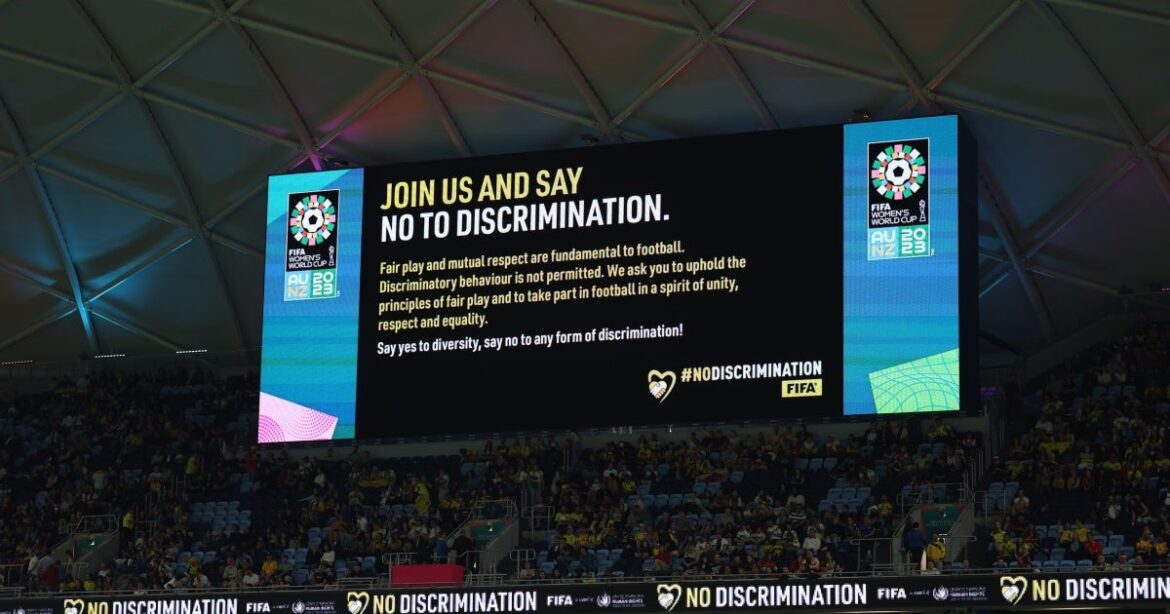Table of Contents
FIFA’s Anti-Discrimination Messaging Withdrawal Raises Alarms
FIFA’s recent decision to cancel planned anti-racism and anti-discrimination messaging at the 2025 Club World Cup in the United States has drawn sharp criticism from human rights organizations. The move, which included the removal of stadium displays and televised messages aimed at combating discrimination, is seen as a significant step back in the global fight against racism in football.
The Dignity 2026 coalition, comprising 15 national-level human rights groups, labor unions, and athletes’ organizations, has condemned FIFA’s actions. They argue that this withdrawal undermines efforts to create an inclusive and respectful environment for players, fans, and communities.
Bailey Brown, president of the Independent Supporters Council, said:
“By withdrawing its own anti-discrimination and anti-racism messaging, FIFA is sending a dangerous signal to players, fans, and the wider public.”
Human Rights Groups Warn of Risks for 2026 World Cup
The timing of FIFA’s decision has raised concerns about the upcoming 2026 FIFA World Cup, co-hosted by the United States, Canada, and Mexico. Human rights organizations fear that the withdrawal of anti-discrimination initiatives could set a troubling precedent for the tournament.
Minky Worden, director of global initiatives at Human Rights Watch, stated:
“Any cancellation of FIFA’s well-established campaigns to eradicate hateful actions in sport is an inexplicable and inexcusable step backward.”
The Sport & Rights Alliance, a coalition of human rights groups, has called on FIFA to take immediate and demonstrable steps to safeguard human rights for all people involved in the 2026 World Cup.
Andrea Florence, executive director of the Sport & Rights Alliance, added:
“Despite FIFA’s mantra that ‘football unites the world,’ a World Cup held under discriminatory and exclusionary policies risks deepening social divides rather than bridging them.”
Calls for Transparency and Accountability
In response to FIFA’s actions, human rights advocates are demanding greater transparency and accountability. They urge FIFA to publicly release and commit to implementing a robust Human Rights Framework for the 2026 World Cup, which has been developed through extensive consultations with civil society stakeholders and public officials from across North America.
A representative from the Global Labor Justice-International Labor Rights Forum commented:
“FIFA should now make the Framework public for all stakeholders without any dilution or further delay.”
Looking Ahead: The Road to 2026
As the 2026 World Cup approaches, the international community is closely watching FIFA’s actions. The withdrawal of anti-discrimination messaging has cast a shadow over the tournament’s commitment to human rights. With just one year until the event kicks off, it is imperative that FIFA takes concrete steps to address these concerns and ensure that the World Cup upholds the values of inclusion, respect, and equality.


